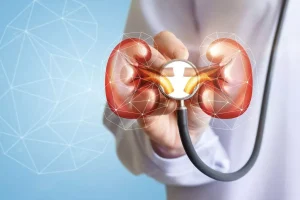
People who take blood thinners will notice that a cut or nick takes longer to stop bleeding and that they bruise more easily. But serious bleeding, such as bleeding in the gastrointestinal tract or brain, can occur. Unlike the older blood thinner coumadin/warfarin, monitoring the PT/INR (prothrombin time/international normalized ratio) is not required while taking Eliquis. Diet is a key component for people taking statins and blood thinners, so make sure your patients know to keep these strategies in mind. Alcoholic beverages and cranberry juice can contribute to the development of side effects when using blood thinners.
Blood Thinners for Heart Disease
Although alcohol thins the blood, long-term use can have a different effect. When a person drinks excessively for long periods, their risk for a stroke increases. Do not drink cranberry or grapefruit juice while you’re taking warfarin. It can increase the effect of your medicine and put you at higher risk of bleeding. Some people may need blood thinners for a few months, while others may require lifelong therapy. A doctor will determine the appropriate length of time based on an individual basis.

Foods to Avoid on Coumadin
Fortunately, Eliquis has not been shown to have a bad interaction with any foods. The usual culprits when it comes to food-drug interactions, such as leafy green vegetables, grapefruit juice, cranberry juice, coffee, and peppermint tea, are safe to enjoy while taking Eliquis. Use of this website and any information contained blood thinners and alcohol herein is governed by the Healthgrades User Agreement. The content on Healthgrades does not provide medical advice. Always consult a medical provider for diagnosis and treatment. Since the effects of this drug can be reversed with vitamin K, the important thing is to eat the same amount of foods that have K each week.

Is Your Heart 10 Years Older Than You?

Some people with certain medical conditions, such as congenital heart defects, need blood-thinning medications to reduce their risk of heart attack or stroke. People taking blood thinners are cautioned against drinking alcohol, but research has found that it is generally safe when done so infrequently and in moderation. Speak to a healthcare provider before drinking alcohol while on blood thinners.
- Blood clots are semi-solid clumps of red blood cells, platelets, fibrin (a type of protein), and other proteins.
- Yes, as long as your other medications are also safe to take with Ozempic (semaglutide).
- Pregnancy, taking estrogen-containing birth control, or using hormone therapy increases women’s chances of deep vein thrombosis, the CDC says.
- Call your doctor or go straight to the emergency room, advises the government-sponsored U.S.
- If you think your dose is incorrect, talk to your doctor about adjusting your medication.
- NPPN provides an independent medical and research specimen collection, processing, and delivery service.
Short-term effects happen to occur during or directly after consuming alcohol, and long-term effects are driven by excessive use over an extended period of time. Blood thinners increase the risk of excessive bleeding, particularly for at risk individuals or people undergoing surgery. Okay, but can you switch medications to make it safer to imbibe? After all, there are numerous blood thinners on the market. It’s important to watch out for signs of gastrointestinal blood loss while taking a blood thinner, which is a serious side effect of Eliquis and potentially life-threatening. The two main things to look out for in terms of this are red blood either in or on the stool, and black stool.
- You may have a higher chance of getting clots in the veins in your legs after a hip or knee replacement.
- There are many clotting factors in our blood, and factor Xa is one of the main ones.
- Almost all affected individuals have blood in their urine, a sign of kidney malfunction.
- Check with your prescriber before adding a supplement to your routine.
Most people pee between six and eight times a day, meaning if something unusual happens with your urine, you’ll probably notice it immediately—especially if you’re peeing blood. Melatonin is available as a supplement, but check first with a doctor as it may interact with other medications and have other adverse effects. One 2020 research review indicates that melatonin may also block the clumping of platelets to form clots. A 2016 laboratory study found that bromelain added to blood samples increased the time the blood took to clot. However, injecting bromelain into a small number of mice did not show this effect, and more research is needed.
Your healthcare provider can also refer you to a dietician if you need extra help planning a heart-healthy diet. In fact the DASH diet, Dietary Approaches to Stop Hypertension, was created in the 1990s to help reduce and treat high blood pressure. Time and time again this type of eating pattern has been proven to be effective in lowering blood pressure, according to a 2020 study published in Advances in Nutrition. St. John’s wort is another common OTC supplement that people may take for depression symptoms. St. John’s wort can lower warfarin levels, which increases your risk of blood clots. It may also lower the levels of DOACs, such as apixaban and rivaroxaban.

